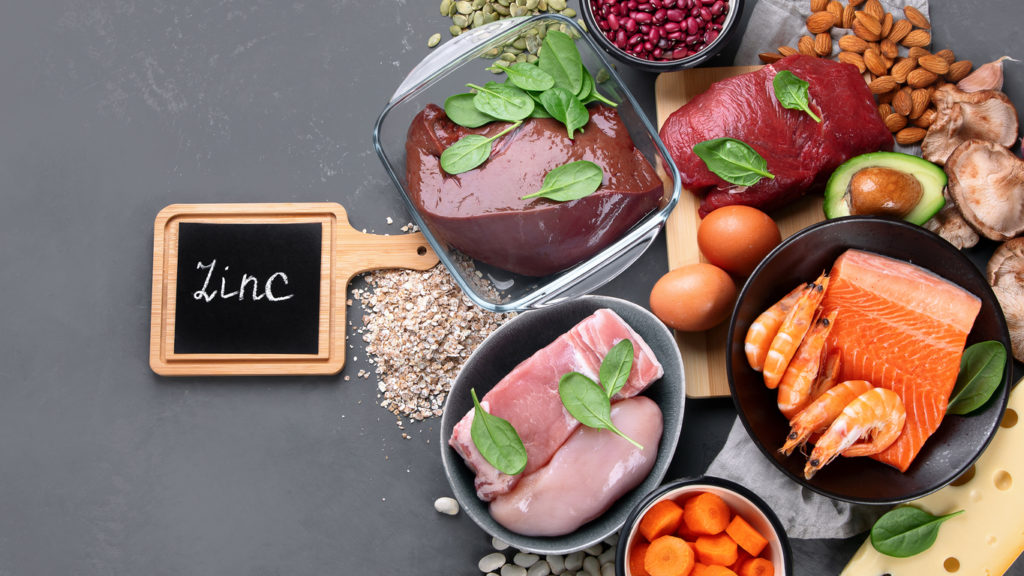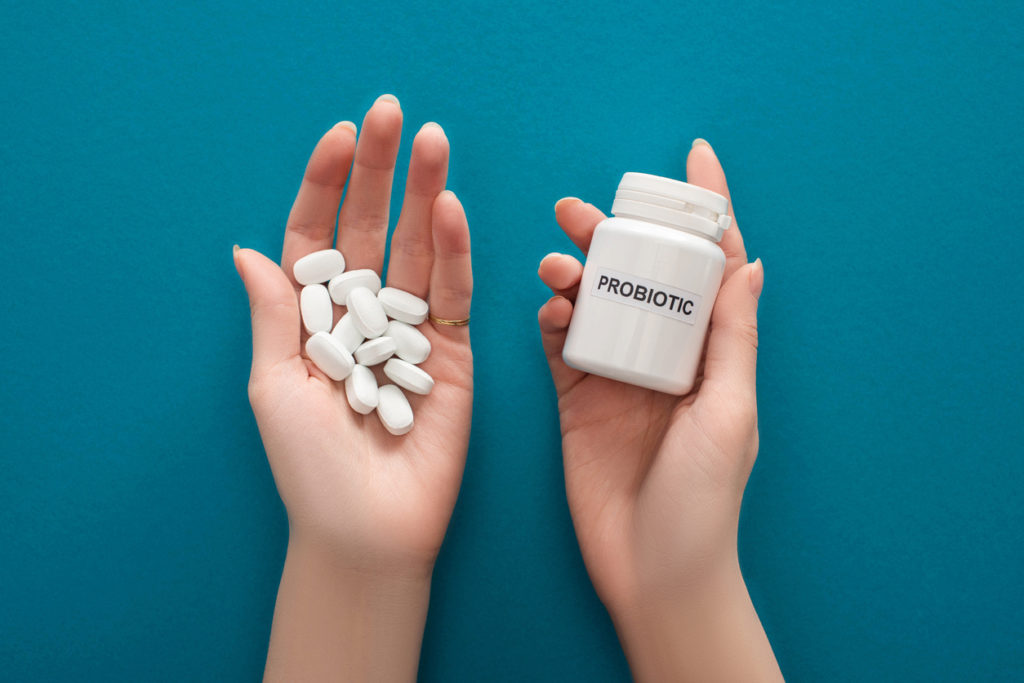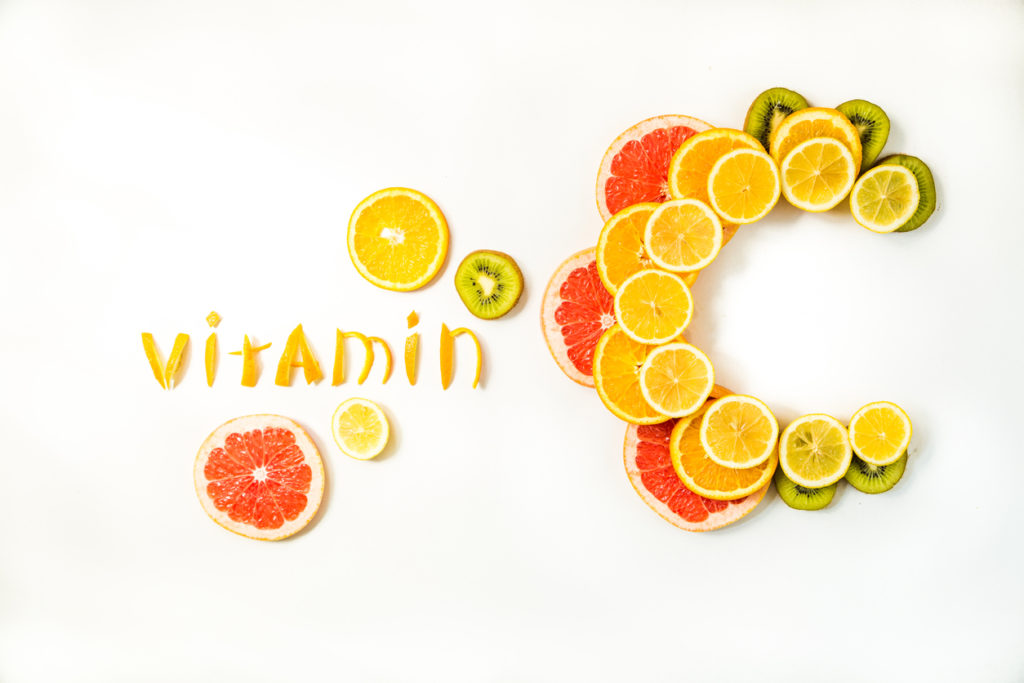Leading doctors share their top tips for strengthening the immune system.
By now, we’ve all heard the news about the Delta Variant - it reportedly causes more infections and spreads faster than earlier forms of the virus that causes COVID-19. Revered medical experts advise getting vaccinated to not only slow the spread but to also protect us from more severe symptoms that could ultimately lead to hospitalization, even death.

That said, viruses are constantly mutating and this one is no exception. The World Health Organization has designated four “variants of interest” and is tracking 13 more.
It looks like COVID isn’t going away. In addition to getting vaccinated, that means wearing a mask in public, getting tested if you are experiencing symptoms and social distancing.
What it also means is fortifying our immune systems so that we are as strong as possible in the face of infection. So how do we do this? I sat down with the pros to find out - Dr. Alejandro Junger and Dr. Susanne Bennett.
Dr. Alejandro Junger is an expert in gut health and nutrition who incorporates functional medicine with Ayurveda, Dr. Junger is an LA-based cardiologist and bestselling author who founded the Clean Program, a company providing high-quality wellness products and supplements to support digestion, increase energy levels and improve overall health.
First on his list: Zinc
According to Dr. Junger, nothing is more important than zinc when it comes to immune health. Studies suggest zinc lozenges or syrup taken within 24 hours after the onset of cold symptoms can help shorten the length of colds. Zinc keeps inflammation under control while helping us develop T-cells, which can kill infected cells, and the antioxidants in zinc are great for skin health. “Since our bodies don’t have a way to store or make zinc,” says Dr. Junger, “we need to get enough zinc in our diet each day.” For many of us, that means a high-quality zinc supplement that is easily absorbed and gentle on the stomach, like Shield from the Clean Program. “Zinc supplementation is especially important for older people and those who are immunocompromised,” says Dr. Junger. “As we age, we tend to have a decreased immune response.”
If you’re looking for zinc in your diet, get decadent and have a few oysters. Red meat, poultry, beans, nuts, whole grains, and dairy products all contain zinc. The caveat is that phytates, a substance found in plant seeds, bind zinc and inhibit its absorption, so it’s generally easier to get your supply from animal foods or a supplement.

Vitamin D3
A fat-soluble vitamin that your body makes when your skin is exposed to ultraviolet light, I’m sure you’ve heard about getting out in the sun to get your daily dose of the D. But what about D3? There are two forms of vitamin D in your body – D2 and D3 – both of which are what we mean when we say vitamin D. D3 can be made by sunlight exposure while D2 must be consumed in your diet. Both promote calcium absorption, reduce inflammation and support immune function.
Okay, back to Dr. Junger.
“Due to modern living,” he says, “many people in the world are vitamin D deficient.” This is because they lack sufficient exposure to sunlight. How sad is that? Sad, but also dangerous. “Sub-optimal vitamin D levels can depress our immune system to the point where it has difficulty supporting a strong and adaptable immune system.” He goes on to say that it was initially believed that supplementation was only necessary during winter months. “But now in many major cities, it can be a challenge to maintain healthy vitamin D levels year-round.” Dr. Junger recommends his Shine supplement, which pairs D3 with vitamin K2 to improve bone density and arterial health while acting as a mood stabilizer.
“Sixty to eighty percent of our immune system is in our gut,” says Dr. Junger. “If the delicate balance of our inner ecosystem is upset, opportunistic bad bacteria and organisms like yeast, fungus, and parasites are more likely to take up residence,” leading to chronic inflammation and a compromised immune system. Balancing your intestinal flora is a powerful way to combat these threats and support your health.
For probiotics to be effective, you need to be consistent in taking them as a supplement or eating fermented foods in your diet on the daily. According to Dr. Junger, it usually takes a few weeks for them to be effective, and you need to be on the lookout for live cultures. I am a kimchi, kombucha and Provitalize girl, while the good doc recommends Cultivate, with 12 potent strains and 30 billion active cultures per capsule.

Dr. Susanne Bennett also sat down with Beautytap.
As a fifth-generation Korean herbalist and one of the country’s leading natural allergy specialists, Dr. Bennett has been promoting natural health for over 28 years in her practice at the Wellness for Life Center in Santa Monica, California, but also across multimedia platforms, from her own radio show on iHeart Radio to guest appearances on television and features in print.
The best-selling author and creator of PURIGENEX Skincare agrees with Dr. Junger that zinc, vitamin D and probiotics are must-haves for optimal health. “Did you know the largest immune tissue is in your gut? “It's called the Gut-Associated Lymphoid Tissue aka GALT,” says Dr. Bennet. “The integrity of your immune defense mechanisms depends on the quality of your GALT.”
Diet and Sleep
Keeping this in mind, Dr. Bennett has many natural suggestions, including eating a nutrient-dense, whole foods diet full of fresh vegetables, fat-rich foods, and healthy proteins to boost your immune factors and antioxidants. “Sauerkraut, pickles, coconut kefir, and my favorite, kimchi all have friendly lactic acid bacteria that will improve your gut immunity as well as prevent microbial infections.” She adds that a recent study found that eating kimchi regularly could lead to a milder case of the coronavirus.
In addition, we need to get enough sleep. We’re talking 7-9 hours of uninterrupted zzzs, “Sleep deprivation can reduce the production of infection-fighting antibodies and immune cells,” she adds.

Herbs
Immune protecting herbs such as ginger, oregano, turmeric, and garlic have high antioxidant power, anti-inflammatory ingredients and antimicrobial benefits. My personal favorite. emulsified oregano oil tablets can help fight off bacteria, viruses, fungi, and amoebas. Dr. Bennet says we should consider it “nature’s broad-spectrum antimicrobial agent”.
Olive Leaf Extract
“I’ve been using olive leaf extract for over 25 years,” says Dr. Bennett. Research has found that olive leaf extract may be an antiviral compound, as well as an immunity booster, with double the antioxidants of green tea. “Olive leaf contains oleuropein, which is a substance that exhibits antibacterial, antiviral and antifungal behaviors in laboratory studies.” And unlike antibiotics that kill both good and bad microorganisms, olive leaf extract appears to selectively target the bad microorganisms.
Andrographis
Many people have never heard of andrographis, but it is a popular supplement – found in capsule and tincture form – used in Asian medicine and has been widely studied. According to Dr. Bennet, it can be used to boost one’s immunity to help fight viral infections, and it has been shown in clinical studies to improve symptoms of the common cold when started within 72 hours of feeling sick.

Vitamin C
This one is the no-brainer. “Vitamin C increases the production of white blood cells needed to fight off viruses and strengthens your immunity.” Dr. Bennett advises looking for supplements that also contain quercetin, a powerful anti-inflammatory and natural antihistamine.
Quercetin
Quercetin is a bioflavonoid that acts as an antihistamine, an antioxidant and anti-inflammatory. Found naturally in dark purple and red fruits (cherries, blueberries, red grapes) and green leafy veggies, it’s great for people with asthma, who may be at a greater risk from respiratory effects of colds and the flu.
Stinging Nettle
“Nettle leaf supports immunity, decreases histamine production and helps the body remove toxins,” says Dr. B. Buy it fresh, add it to boiling water and take it as a tea.
NAC (N-Acetyl Cysteine)
“NAC is my go-to natural Mucinex!” This amino acid breaks down mucus naturally and has been heavily studied to address bronchial and respiratory disorders, while also being the precursor to glutathione, which is the master antioxidant of the human body.

Elderberry
Elderberry works as an antiviral and antibacterial agent, it enhances the body’s immune system, helps with nasal congestion and can reduce mucus membrane swelling. You can buy or make elderberry syrup or chew on some gummies. Delish.
The Last: Laugh
“Studies show that laughing regularly decreases stress hormones and fight or flight neurotransmitters such as cortisol and adrenaline, while increasing “immune defense mechanisms that combat viruses and bacteria,” says Dr. Bennett.
So, here’s your homework: Say “ha” out loud five times in a row (“ha ha ha ha ha”) while looking up at the ceiling, feel the vibration of the “ha” down deep in the throat. Do it five times in a row and see if it triggers you to naturally laugh. Try it out with friends and family for a rollicking good time!
Cheers to staying strong and healthy.🥂
Loading...